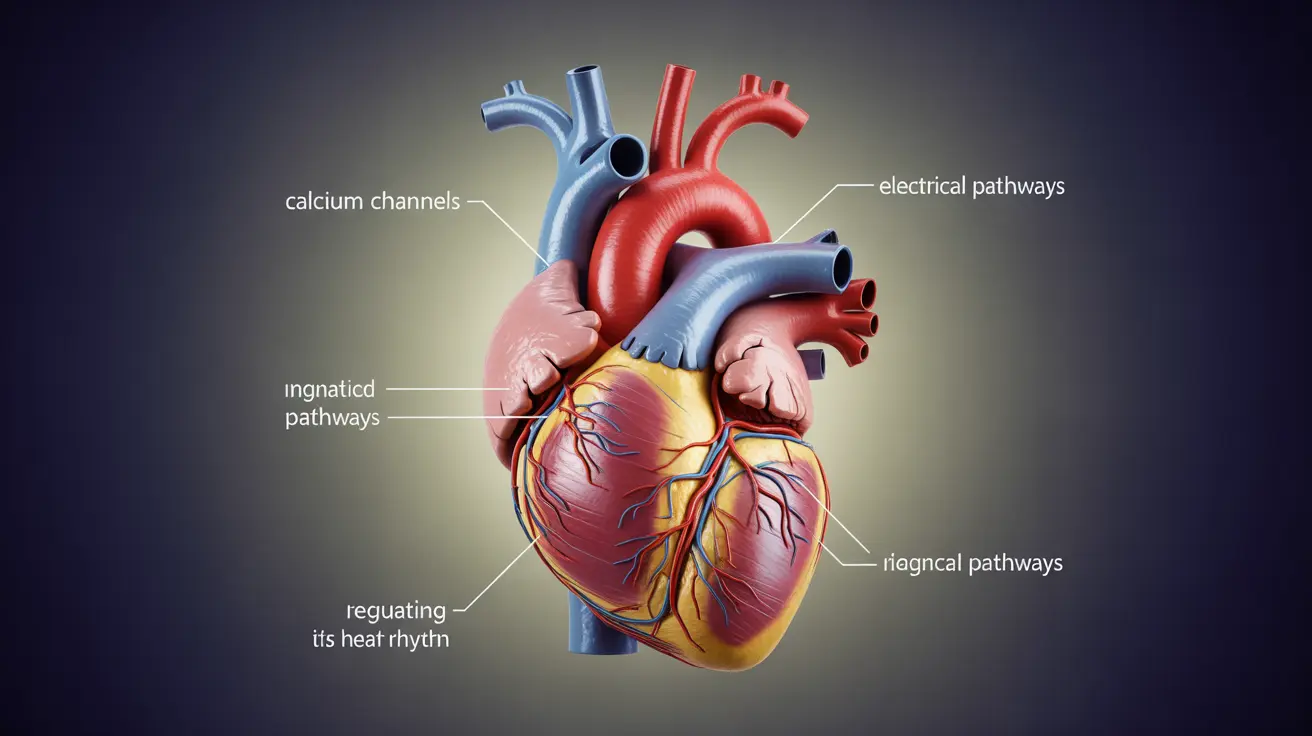The relationship between magnesium and heart palpitations is complex and important to understand. This essential mineral plays a crucial role in maintaining normal heart rhythm and function. Whether you're experiencing heart palpitations or considering magnesium supplementation, it's vital to understand how this mineral affects your heart health.
Let's explore the intricate connection between magnesium levels and heart palpitations, including both the benefits and potential risks of magnesium supplementation.
The Role of Magnesium in Heart Function
Magnesium is fundamental to your heart's electrical system and muscle function. This mineral helps maintain a steady heartbeat by:
- Regulating calcium channels in heart cells
- Supporting proper nerve conduction
- Helping maintain normal muscle contractions
- Stabilizing heart rhythm
When magnesium levels are properly balanced, they help ensure your heart maintains a regular rhythm and prevents irregular heartbeats or palpitations.
How Magnesium Deficiency Affects Heart Rhythm
Low magnesium levels can significantly impact your heart's function and potentially lead to palpitations. Common symptoms of magnesium deficiency affecting heart rhythm include:
- Noticeable heart palpitations
- Irregular heartbeat sensations
- Racing heart
- Chest discomfort
- Fatigue
These symptoms often develop gradually as magnesium levels decrease, making it important to maintain adequate intake through diet or supplementation when necessary.
Magnesium Supplementation and Heart Health
While magnesium supplements can help prevent heart palpitations in cases of deficiency, it's crucial to take them appropriately. The right dosage depends on various factors, including:
- Your current magnesium levels
- Overall health status
- Other medications you may be taking
- Age and gender
- Existing medical conditions
Recommended Daily Intake
The recommended daily allowance (RDA) for magnesium varies by age and gender:
- Adult men: 400-420 mg daily
- Adult women: 310-320 mg daily
- Pregnant women: 350-360 mg daily
Potential Risks and Side Effects
While magnesium is essential for heart health, excessive intake can cause problems. Signs of too much magnesium may include:
- Digestive issues
- Muscle weakness
- Low blood pressure
- Changes in heart rhythm
- Severe cases: irregular heartbeat
Frequently Asked Questions
Can low magnesium levels cause heart palpitations and irregular heartbeat?
Yes, magnesium deficiency can cause heart palpitations and irregular heartbeat. Magnesium is essential for maintaining proper heart rhythm, and low levels can disrupt the heart's electrical system, leading to palpitations.
Can taking too much magnesium supplement lead to heart palpitations?
Yes, excessive magnesium supplementation can potentially cause heart palpitations and other cardiovascular issues. It's important to stay within recommended dosage guidelines and consult with a healthcare provider before starting supplementation.
How does magnesium help regulate heart rhythm and prevent arrhythmias?
Magnesium helps regulate heart rhythm by maintaining proper electrical conduction in the heart, managing calcium channels, and supporting proper muscle contractions. It acts as a natural calcium blocker and helps stabilize heart cell membranes.
What is the recommended daily magnesium intake to avoid heart palpitations?
The recommended daily magnesium intake varies by age and gender, but generally ranges from 310-420 mg for adults. However, individual needs may vary based on health status and other factors. Consult with a healthcare provider for personalized recommendations.
Can magnesium supplements interact with medications to cause heart rhythm problems?
Yes, magnesium supplements can interact with various medications, including those for heart conditions, antibiotics, and blood pressure medications. These interactions could potentially affect heart rhythm. Always discuss supplement use with your healthcare provider, especially if you're taking other medications.




